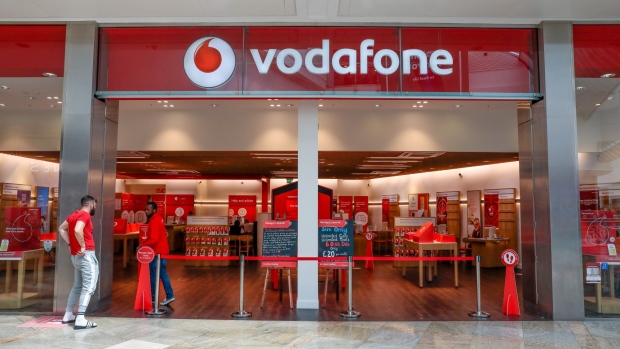Jun 18, 2021
U.K. Told Mobile Operator Price Hikes May Be Uncompetitive
, Bloomberg News

(Bloomberg) -- U.K. regulators have been urged to investigate Britain’s phone operators after the largest companies announced similar rises in mobile contracts in the space of several months.
The four network operators that account for 87% of U.K. mobile customers -- Vodafone Group Plc, BT Group Plc’s EE, CK Hutchison Holdings Ltd.’s Three UK and Telefonica SA’s O2 -- announced comparable price increases for customers with recent contracts, according to a report by Fideres Partners LLP, a consultancy that investigates corporate wrongdoing. O2’s will go into effect next year while the other three have increased rates since last September.
Fideres, which produces research for law firms, regulators, and campaign groups, said the price hikes will cost consumers an estimated 400 million pounds ($554 million) extra per year, and it will be relatively difficult for U.K. consumers to terminate their contracts compared to other markets. Last month, it sent its findings to U.K. telecommunications regulator Ofcom and the Competition and Markets Authority asking them to investigate.
The regulators declined to comment on Fideres’ latest report, which contained no evidence that the phone companies colluded on the price increases.
London-based Fideres has previously produced reports highlighting banks’ pricing of corporate bonds, noting “anomalous” drug-price moves and supporting investigations against several financial institutions on collusion to fix benchmarks for interest-rate products.
Representatives for O2 and Three said they couldn’t comment without seeing the report in its entirety. A spokeswoman for BT said the change was “to simplify and consolidate our price-change policies to better reflect the Ofcom Fairness commitments,” referring to voluntary pricing guidelines.
The increase “reflects the level of investment we need to make within our business to continue our major investments in networks and service, while also prioritizing vulnerable customers suffering from financial hardship or digital exclusion.”
A Vodafone spokesman said “this is a hugely competitive market, with vast consumer choice and consistently improving value for money on high quality networks.”
“While increasing prices is never easy, we do have to set our prices each year to keep pace with the continued need to invest in our network, driven by ever-increasing usage and now the additional requirement to remove Huawei equipment. Similar pressures are felt by all operators.”
Competition
Mobile companies have long complained about margins in the U.K. market, which even Fideres said has had high competition for decades and relatively stable prices since 2016. The government’s decision to ban equipment from Huawei Technologies Co. and an expensive rollout of 5G technology could squeeze profits further.
But mergers between mobile providers, which would reduce the number of large competitors, have historically been discouraged. A combination of O2 and Three UK was blocked by the European Union in 2016, with the regulator citing concerns over potential price increases. O2 earlier this month merged with Liberty Global Plc’s internet and TV provider Virgin Media. That means Virgin’s future mobile pricing strategy will also be worth examining, Fideres said.
Even though their price increases might be aligned, the companies still compete fiercely over new customers, said James Ratzer, an analyst at New Street Research.
“At the end of every two-year contract, you have the opportunity to go back into that market and take advantage of the advertised prices,” Ratzer said. “The operators’ hope is that a lot of customers won’t switch -- but a lot will.”
BT’s EE and Vodafone both increased plan prices by 3.9% plus December’s consumer price inflation rate, which this year adds up to 4.5%. Three UK instituted a simple price increase of the same amount. From next year, O2 airtime charges will increase by January’s retail inflation rate plus 3.9%.
©2021 Bloomberg L.P.





